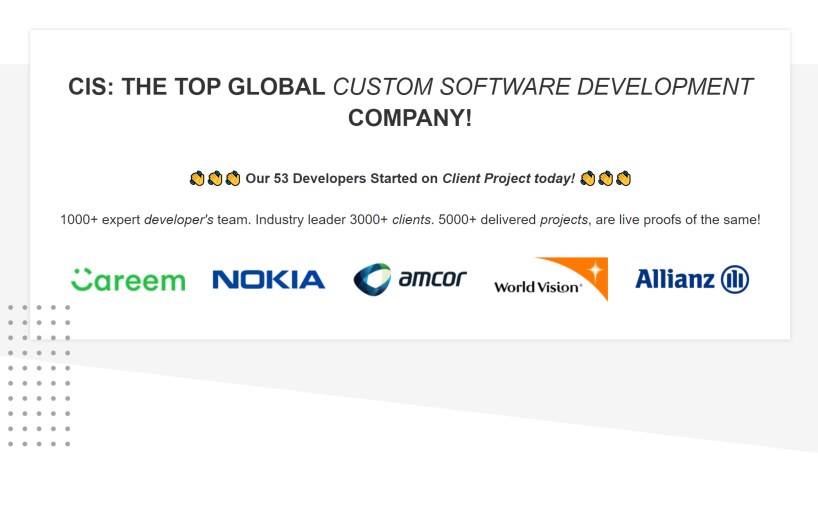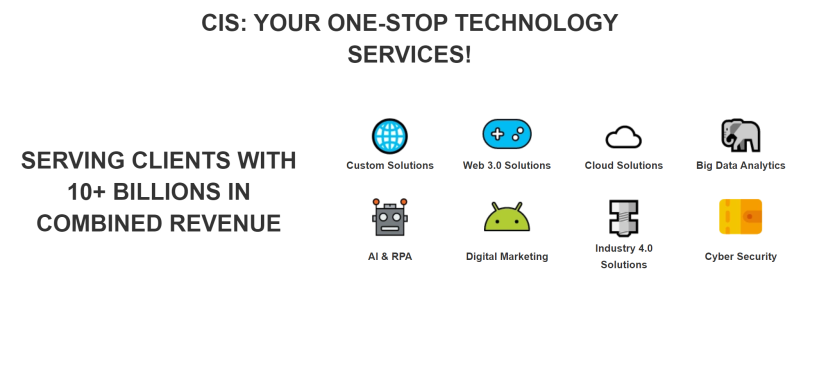Maximizing ROI: The Cost and Benefits of Adopting Servicenow For Retail for Your Business
- ServiceNow for Retail - Detailed Analysis by Enterprise Solutions Experts



Why Mid-size Companies and Enterprises needs ServiceNow For Retail:
ServiceNow for Retail is a cloud-based platform that helps mid-size companies and enterprises manage their retail operations more effectively. It provides end-to-end visibility of the entire retail value chain, from product sourcing to customer service, enabling retailers to identify potential problems before they become costly issues. ServiceNow for Retail also offers powerful analytics tools to help retailers gain insights into customer behavior, optimize inventory management and pricing strategies, and improve operational efficiency. Additionally, it enables retailers to easily integrate with third party systems such as ERP solutions or payment gateways for seamless data exchange across multiple channels.
Benefits of using ServiceNow For Retail in Mid-size companies and Enterprises:
1. Improved Customer Service:
ServiceNow for Retail enables companies to provide enhanced customer service, from creating tickets and tracking progress to resolving issues quickly and efficiently. This ensures that customers have a better experience with the company and are more likely to return in the future.
2. Increased Efficiency:
Automating processes within retail stores can help increase efficiency by eliminating manual tasks such as data entry or order processing. With ServiceNow for Retail, businesses can streamline their operations while reducing costs associated with labor-intensive processes.
3. Enhanced Visibility:
By utilizing ServiceNow's reporting capabilities, retailers can gain real-time visibility into store performance metrics such as sales figures, inventory levels, customer satisfaction ratings, etc., allowing them to make informed decisions about how best to optimize their operations and maximize profits.
4. Cost Savings:
Implementing a cloud-based platform like ServiceNow helps reduce IT infrastructure costs by eliminating the need for onsite hardware or software installations at each location in favor of centralized management via the cloud environment which is much more cost effective than traditional methods of managing multiple locations separately..Detailed Features of ServiceNow For Retail for Mid-size companies and Enterprises:
1. Automated Incident Resolution:
ServiceNow for Retail provides automated incident resolution to quickly detect and resolve incidents before they become bigger problems. This helps mid-size companies and enterprises save time, money, and resources while improving customer satisfaction.
2. End-to-End Visibility:
With ServiceNow for Retail, you can get a comprehensive view of your retail operations from end-to-end visibility across all channels including online stores, physical stores, mobile apps etc., allowing you to make informed decisions in real time.
3. Intelligent Workflows & Processes:
ServiceNow for Retail enables intelligent workflows that automate manual processes such as order fulfillment or inventory management so that your staff can focus on more strategic tasks instead of mundane ones.
4. Predictive Analytics & Insights:
With integrated predictive analytics capabilities in ServiceNow for Retail, you can gain insights into sales trends and customer behavior which help you better understand the needs of customers and boost sales performance over time.
5. Integrated Platforms & Applications:
Through its integration with various platforms like Salesforce Commerce Cloud or Shopify Plus, ServiceNow for Retail gives retailers access to critical business data from multiple systems within one unified platform making it easier to manage operations across different channels simultaneously without having to switch between them constantlyWho are the Users of ServiceNow For Retail:
The customers using ServiceNow for Retail include major retailers such as Walmart, Target, Best Buy, Macy's, Kohl's, Nordstrom and many more.
How to ensure Data Security and Compliance with ServiceNow For Retail:
1. Implement Role-Based Access Control (RBAC):
RBAC allows you to restrict access to data and applications based on the user's role in your organization, ensuring that only authorized personnel can view sensitive information.
2. Use Encryption:
Encrypting data stored in ServiceNow for Retail will ensure that it is unreadable by anyone who does not have the appropriate decryption key. This helps protect against unauthorized access and ensures compliance with industry standards such as HIPAA and PCI DSS.
3. Monitor User Activity:
Regularly monitoring user activity within ServiceNow for Retail will help detect any suspicious behavior or attempts at unauthorized access of sensitive data, allowing you to take corrective action quickly if necessary.
4. Leverage Multi-Factor Authentication (MFA):
MFA adds an extra layer of security by requiring users to provide two or more authentication factors before they are granted access to a system or application, making it much harder for malicious actors to gain entry into your system without authorization.How ServiceNow For Retail can increase organization Productivity, Agility, and Profitability:
ServiceNow for Retail can increase organization productivity, agility, and profitability by streamlining processes and improving customer service. It provides a single platform for managing all retail operations from sales to inventory management, customer service, marketing campaigns, analytics and more. This allows retailers to quickly respond to changing market conditions while also creating personalized experiences that drive loyalty. Additionally, ServiceNow's automation capabilities reduce manual tasks associated with mundane activities like data entry or order processing which frees up resources so they can focus on higher-value initiatives. With better visibility into the entire operation, retailers can make smarter decisions faster resulting in improved efficiency and ultimately increased profits.
How to Measure KPIs and increase Benefits of implementing ServiceNow For Retail in Mid-size companies and Enterprises:
1. Track customer satisfaction:
Use ServiceNow to track customer feedback and complaints, as well as their overall level of satisfaction with the service they have received. This will help you identify areas for improvement and measure how effective your implementation is in meeting customers' needs.
2. Monitor operational efficiency:
Analyze data from ServiceNow to monitor the speed at which tasks are completed, the accuracy of records kept, or any other metrics that can be used to assess operational efficiency within the organization.
3. Measure employee performance:
Keep an eye on how quickly employees are able to complete tasks using ServiceNow, how often they make mistakes or need assistance from others, and whether or not they are taking advantage of all available features when completing tasks on ServiceNow's platform.
4. Assess cost savings:
Use analytics tools provided by ServiceNow to compare costs before and after implementing its services in order to determine if there has been a reduction in costs related to operations or staff time spent working on specific projects/tasks since adopting its system into your workflow process.
5. Evaluate ROI (Return On Investment):
To ensure that your investment in implementing "ServiceNow for Retail" is paying off, calculate the return on investment (ROI) by comparing profits made against costs incurred due to implementation of this technology solution over a certain period of time (e.,g 6 months).How ServiceNow For Retail can increase Employee Morale in your organization:
ServiceNow for Retail can increase organization employee morale by providing employees with a platform to easily access information and services related to their job, as well as giving them the ability to collaborate more effectively with other departments. It also allows organizations to streamline processes, reducing time spent on mundane tasks and freeing up resources for more meaningful work. Additionally, it can give employees greater autonomy over their workflows, allowing them to take ownership of projects and feel empowered in their roles. Finally, ServiceNow for Retail provides analytics that allow managers and supervisors to better understand how each individual is performing, giving them the opportunity to reward good performance or provide corrective feedback when needed.
How ServiceNow For Retail is Better than its Competitors:
ServiceNow for Retail offers a comprehensive suite of solutions that are tailored to the unique needs of retailers. It provides an integrated platform that helps streamline operations, increase customer engagement, and improve efficiency. ServiceNow for Retail also offers advanced analytics capabilities that enable retailers to gain valuable insights into their customers' buying habits and preferences. Additionally, its mobile-first approach makes it easy for customers to access services on any device at any time. These features make ServiceNow for Retail better than its competitors by helping retailers provide a more personalized experience while optimizing their operations.
Cost to Develop & Implemention of ServiceNow For Retail:
The cost to develop and deploy ServiceNow for Retail will depend on the specific needs of your organization. Factors such as the number of users, customization requirements, and other unique factors can all impact the overall cost. Generally speaking, you can expect to pay anywhere from $50,000-$100,000 or more depending on your individualized needs.
Why outsourcing implementation services for ServiceNow For Retail is better for Mid-size companies and Enterprises:
Outsourcing implementation services for ServiceNow for Retail can be beneficial to mid-size companies and enterprises because it allows them to access the expertise of experienced professionals who are familiar with the platform. This helps ensure that any issues encountered during implementation are resolved quickly and efficiently, saving time and money. Additionally, outsourcing can reduce costs associated with training staff, which is especially important in larger organizations where multiple people may need to learn how to use the system. Finally, outsourcing provides a more flexible approach than traditional IT departments as changes can be implemented quickly without needing additional resources or personnel.


